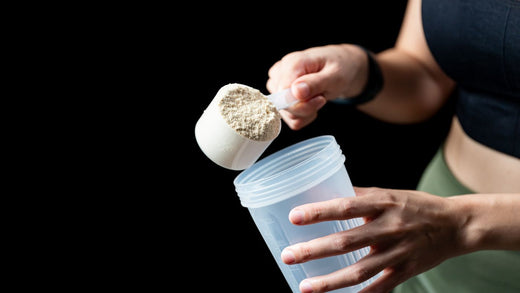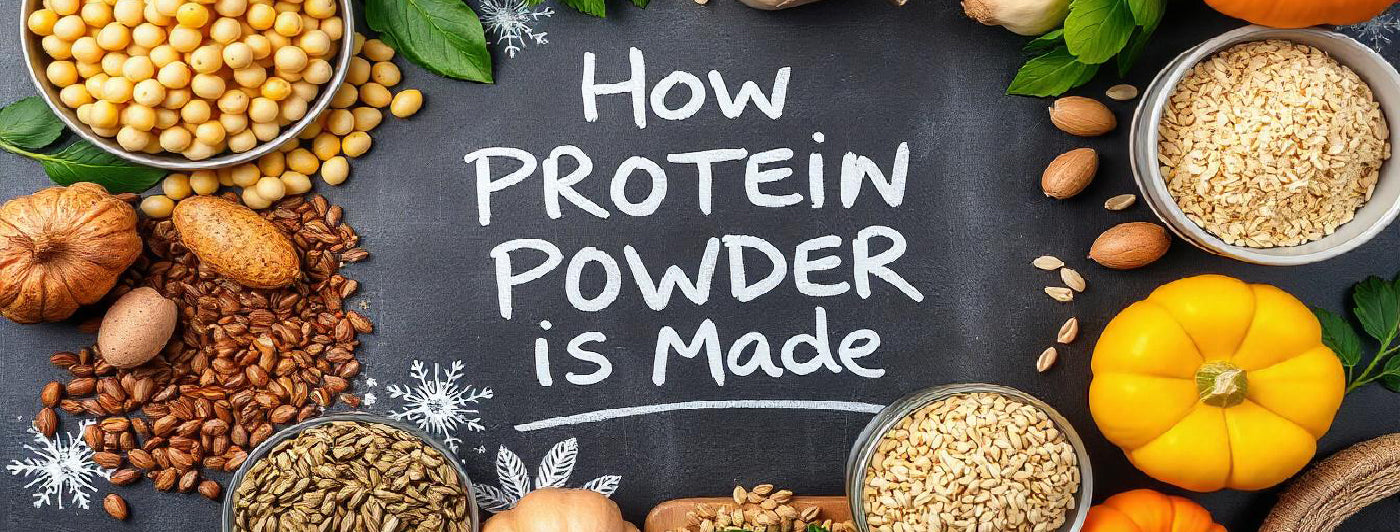Vegan plant based protein powder has become a fundamental component of the diets of numerous fitness enthusiasts and athletes, providing a convenient and effective means to enhance their daily protein consumption. However, some individuals encounter bloating, an uncomfortable sensation that disrupts daily activities, diminishes workout performance, and negatively affects overall well-being. According to a study published, bloating affects approximately 18% of the population worldwide. Addressing bloating is essential for maintaining a healthy digestive system and optimizing workout recovery.
Bloating can interfere with nutrient absorption, leading to suboptimal exercise results, and the associated discomfort and pain can make it challenging to focus on workouts and physical activities. By understanding the causes of bloating and implementing effective strategies to alleviate it, individuals can prevent bloating from protein powder.
Understanding the Causes of Bloating: A Deeper Dive
- Bloating, characterized by a distended abdomen and discomfort, is a common issue experienced by many individuals. While it can be caused by various factors, some of the most common culprits include food intolerances and sensitivities, gastrointestinal disorders, excessive gas production, hormonal fluctuations, medications, and constipation.
- One common cause of bloating is food intolerance or sensitivity. Lactose intolerance, for example, occurs when individuals cannot properly digest lactose, a sugar found in dairy products. The undigested lactose can ferment in the intestines, producing gas and causing bloating. FODMAPs, a group of carbohydrates, can be poorly absorbed by some people, leading to fermentation in the intestines and bloating. Gastrointestinal disorders can also contribute to bloating.
- Irritable Bowel Syndrome (IBS) is a chronic condition affecting the large intestine, often causing symptoms such as abdominal pain, bloating, gas, and changes in bowel habits. Small Intestinal Bacterial Overgrowth (SIBO) occurs when there is an excessive amount of bacteria in the small intestine, which can lead to bloating, gas, and other digestive symptoms.
- Excessive gas production can also be a factor in bloating. Swallowing air, which can occur when eating too quickly, chewing gum, or drinking carbonated beverages, can contribute to bloating. Additionally, the fermentation of undigested carbohydrates in the intestines can produce gas.
- Hormonal fluctuations can also play a role in bloating. For example, hormonal changes during the menstrual cycle or pregnancy can cause fluid retention and bloating. Medications can also contribute to bloating. Certain medications, such as antibiotics, can disrupt the balance of bacteria in the intestines, leading to bloating and other digestive symptoms.
- Finally, constipation can cause bloating. When stool remains in the colon for an extended period, it can accumulate and cause a distended abdomen.
- It's important to note that these are just some of the possible causes of bloating, and individual experiences may vary. If you're experiencing persistent bloating or other digestive symptoms, it's recommended to consult with a healthcare professional for a proper diagnosis and treatment plan.
5 Effective Tips to Prevent Bloating from Protein Powder
Bloating is a common side effect for many individuals who consume protein powder. While it can be uncomfortable and inconvenient, there are several effective strategies to alleviate or prevent this issue.
1. Choose the Right Protein Powder
The type of protein powder you select can significantly impact your risk of bloating. For instance, whey protein concentrates may contain up to 5-6% lactose, which can cause discomfort in individuals with lactose intolerance. Opting for plant-based protein powders, such as pea or rice protein, has shown fewer instances of bloating, particularly for those with dairy sensitivities.
2. Gradually Increase Protein Intake
Introducing protein powder into your diet gradually allows your body to adjust to the increased protein intake, minimizing digestive discomfort. Research indicates that sudden high protein intake can overwhelm the digestive system, often leading to bloating and gas. Start with smaller amounts and gradually increase as your body adapts, which is key to preventing such discomfort.
3. Consume Protein Powder with Meals or Snacks
Consuming protein powder alongside a meal can promote smoother digestion and reduce bloating risks. Studies show that protein powder taken on an empty stomach can increase discomfort. The enzymes and acids in meals help break down proteins more efficiently, reducing their concentration in the digestive tract, thereby minimizing irritation.
4. Modify Your Diet
Some foods, like those high in unhealthy fats, sugars, and artificial additives, can disrupt digestion. For example, cruciferous vegetables like broccoli and cauliflower are known to cause bloating for some people. Opt for whole, unprocessed foods, and watch your fiber intake, as overconsumption of fiber can lead to bloating. Introducing probiotics like yogurt or fermented foods can improve digestion by restoring gut balance.
5. Consult with a Healthcare Professional
If you're experiencing persistent bloating despite these strategies, consult with a healthcare professional. They can provide personalized advice, especially if your bloating is linked to underlying conditions like irritable bowel syndrome (IBS), which affects around 10-15% of the global population.
By understanding the potential causes of protein powder bloating and adopting these strategies, you can enjoy the benefits of protein supplementation without discomfort.
How to Properly Mix and Consume Protein Powder to Avoid Bloating
- Properly mixing and consuming protein powder can significantly reduce the risk of bloating. One key factor is to choose the right liquid for mixing. If you are prone to bloating, especially from lactose intolerance, it’s better to mix your protein powder with water or plant-based milk alternatives like almond, oat, or coconut milk instead of dairy milk. Dairy products, particularly those high in lactose, can contribute to bloating for many people, as lactose can be difficult to digest for some.
- Blending the protein powder thoroughly is another important step. Using a blender or shaker bottle helps break down the powder more evenly, reducing the chance of clumping, which can make digestion harder. Lumps of undissolved powder can sit in your stomach longer, potentially causing discomfort or bloating.
- Timing of protein consumption also plays a role in preventing bloating. Instead of consuming large amounts of protein in one sitting, try spacing out your intake throughout the day. This gives your body time to digest and absorb the protein more efficiently, reducing the load on your digestive system. It may also help to avoid consuming protein powder immediately before or after large meals, as this can overwhelm your digestive system and increase the likelihood of bloating.
- By following these strategies using non-dairy liquids, blending thoroughly, and spreading out consumption, you can avoid bloating from protein powder while minimizing digestive discomfort. For more tips on preventing bloating and improving digestion.
Conclusion
Adding protein powder to your diet doesn't have to come with the discomfort of bloating. By understanding the causes of bloating from protein powder and implementing simple strategies for your goals like weight loss or muscle gain choosing vegan plant based protein powder for muscle gain, mixing it properly, and paying attention to your body’s digestive responses, you can significantly reduce or eliminate bloating. Remember, everyone's body reacts differently, so it may take some experimentation to find what works best for you. With these tips, you can enjoy the benefits of protein powder without the unwanted side effects.











